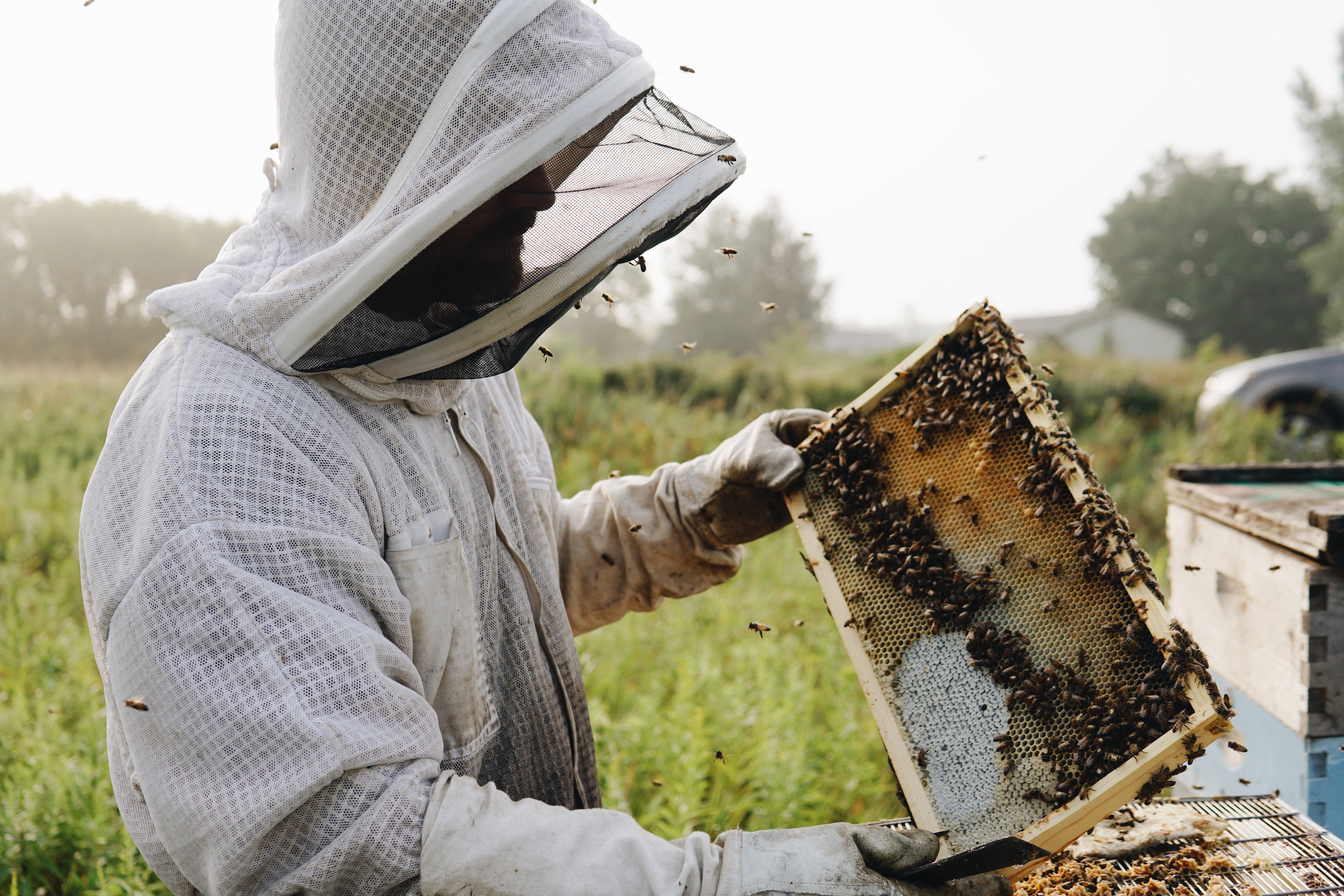On a foggy, warm August morning, the bees are humming loudly in and around their hives. But not just any hives. We're on an early morning visit to one of Bare Honey's solar hive locations in East Central Minnesota to learn about Solar Based Beekeeping™. And what we find here is nothing short of regenerative magic.

Most of us know by now that pollinators, like honeybees, are facing a major crisis with declining populations. Why? The long and short of it from Bare Honey: "The use of systematic agricultural pesticides and poor nutrition caused by shrinking native habitats are contributing to weakened immune systems and disease transmission among bee populations."
But here in these fields next to a solar farm, we learn about an incredible and sustainable solution that Bare Honey is at the forefront of: developing pollinator oases and collecting Solar Grown Honey™ from hives placed upon solar arrays. The solar arrays are surrounded with an intentionally-planted flowering habitat that pollinators love, which becomes their regenerative refuge. This acreage is now untouched by industrialized agriculture, which is exactly what the bees need to thrive.

As the bees whirl around us and Bare Honey Head Beekeeper Dustin gently checks each hive, we dive further into Bare Honey's vision for Solar Based Beekeeping. The goal is collaborative: innovative multi-use of land that stacks environmental benefits.
"We envision a future where acres of land covered with photovoltaic arrays are also being used for sheep grazing and honey production, while the land surrounding these arrays is filled with farms of pollinator-dependent crops. The benefit of these arrays is not limited to the production of honey, the apple orchards, strawberry, blueberry, pumpkin, squash, and melon farms that surround these solar farms will also benefit from the abundance of pollinators naturally present."

What will it take to get there? First, an ecosystem of businesses that have a shared vision and commitment to renewable energy, regenerative agriculture, and preserving habitats + soil. When done correctly, these partnerships and shared use of land not only leave nature thriving, but allow businesses to thrive and prosper, too.
Second, food production companies like Seven Sundays making an ongoing commitment to source ingredients on a large scale from regenerative farmers and harvesters like Bare Honey, which allows them to do more of what they already are.
Finally, a rising generation of consumers who are willing to vote for a better tomorrow with their dollars.

You can find Bare Honey lightly and perfectly sweetening our Wild & Free Blueberry Chia Buckwheat Eco Packs sold here: sevensundays.com/products/32oz-wild-free-blueberry-chia-buckwheat-muesli-eco-pack
You can find Bare Honey's truly delicious solar honey sold here: barehoney.com/collections/solar-honey

